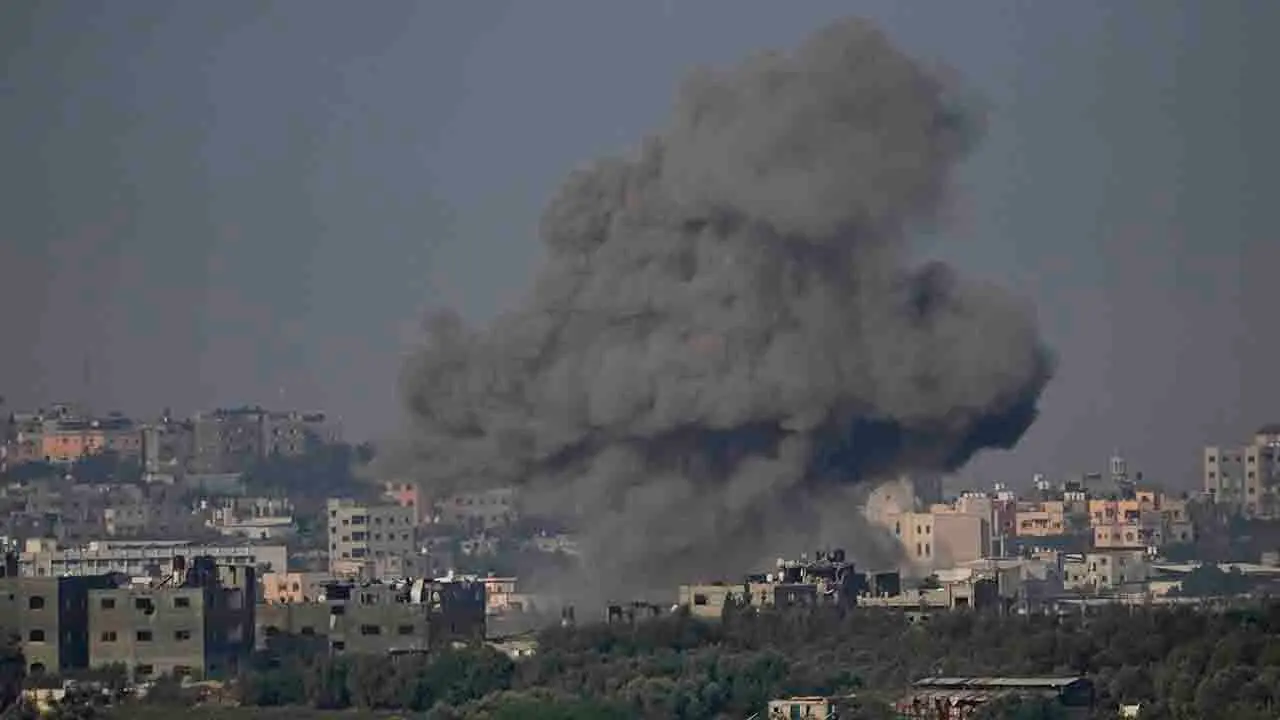” War and Displacement: The Impact of Conflict on Students in Gaza and Ukraine “
Written by Gull , a student of BS English Language & Literature at International Islamic University, Islamabad
In times of war, the destruction of structures is incontinent visible. But what is less seen — yet just as ruinous — is the dislocation to education and the emotional risk it takes on scholars. From Gaza to Ukraine, youthful people have come unintentional actors in conflicts they did not start, and their futures are being shaped by violence, relegation, and query. As a pupil watching these events unfold from hence, I find it delicate to imagine the challenges my peers in conflict zones are facing. Education, frequently seen as a path to stability and occasion, becomes one of the first casualties in war. In Gaza and Ukraine, seminaries have been reduced to debris, universities have been forced to close or dislocate, and digital literacy is frequently insolvable due to damaged structure or lack of electricity and internet access. In Gaza, the impact is especially severe. Repeated escalations have left not only physical destruction but also cerebral scars. Numerous scholars have lost family members or have been displaced multiple times within their own megacity. The United Nations reports that numerous seminaries in Gaza are either destroyed or being used as exigency harbors, leaving no space or coffers for literacy. For these scholars, the classroom is no longer a place of growth but a distant memory. Ukraine presents a different but inversely delicate picture. Since the full-scale irruption began in 2022, millions of scholars have had their education disintegrated. Some have fled to bordering countries and are trying to continue their studies in strange languages and systems. Others remain in Ukraine, attending classes online while air raid enchantresses intrude on their assignments and preceptors try to maintain a sense of normality in unusual times. Universities have had to acclimatize quickly, frequently operating from basements or harbors, and numerous academics have left the country in search of safety. What unites scholars in both Gaza and Ukraine is the feeling of being left behind — not just academically, but emotionally. The trauma of war lingers beyond physical safety. Mental health support is limited, and the constant state of fear and insecurity makes it difficult for youthful people to plan for their future. The simple dreams of graduating, starting a career, or traveling abroad have been replaced by questions of survival, relegation, and loss. When students are denied access to the academy, it does not just delay their studies; it fractures their sense of purpose. Conflict does not just break education; it frequently permanently alters it. As global citizens, we must ask ourselves: What can be done? Governments and transnational organizations have a responsibility to ensure that education is defended, indeed in times of conflict. This means backing exigency education programs, supporting displaced scholars with literacy and language and holding raiders responsible for attacks on seminaries. But beyond policy, there is a mortal side to this story that deserves further attention. Too frequently, scholars affected by war are spoken about only in terms of statistics. But each pupil has a name, a story, and a future that matters. They are not just” casualties” of conflict — they are artists, masterminds, creators, and preceptors in the timber. They are part of the generation that will one day help rebuild their countries. Denying them education is not only a violation of their rights; it is a loss for all of us. There are also assignments for those of us living in more stable surroundings. We should not take our access to education for granted. Nor should we assume that conflict is a commodity distant and unconnected to our lives. The world is further connected than ever, and the ripple goods of war — whether through exile movements, profitable impacts, or global security — touch us all in some way. Transnational scholars from Gaza and Ukraine presently studying abroad are frequently under immense pressure. They need more than just academic support — they need empathy, community, and understanding. Universities around the world can play a meaningful part by offering special admission pathways, internal health services, and fiscal support for scholars affected by conflict. These are not acts of charity but of justice and solidarity. The world is facing complex challenges, but the protection of education in times of war should not be negotiable. It is not only a philanthropic precedence but also a long-term investment in peace. In both Gaza and Ukraine, students are continuing to learn in whatever ways they can — through damaged handbooks, online platforms, or participated notes passed between displaced communities. Their adaptability is remarkable. But adaptability should not be a demand for education. Safety, stability, and access should be the norm, not the exception. As we follow the news and advocate for peace, let us not forget the scholars whose dreams are staying in the murk of conflict. They, too, earn an unborn erected not on fear but on knowledge, occasion, and stopgap.
Written by Gull , a student of BS English Language & Literature at International Islamic University, Islamabad
Email: nayeongull337@gmail.com






Comments are closed, but trackbacks and pingbacks are open.